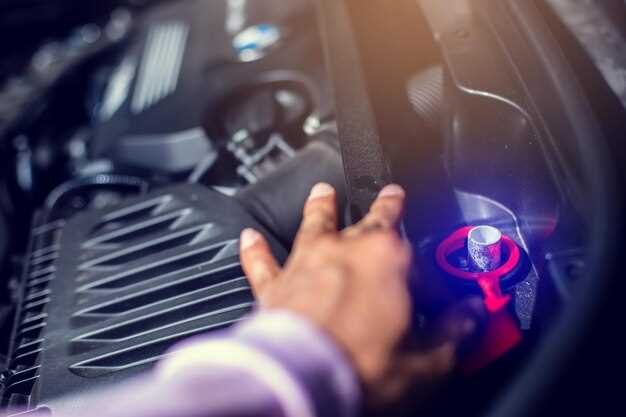
Every car enthusiast dreams of unlocking their vehicle’s full potential, and enhancing horsepower is one of the most popular ways to achieve that goal. Through careful tuning and clever modifications, it’s possible to generate more power without compromising the integrity of your car. In this article, we’ll explore a variety of straightforward yet effective techniques to boost your car’s horsepower safely.
Understanding the basic principles of engine performance is crucial for any car owner contemplating tuning. Adding horsepower isn’t merely about installing aftermarket parts; it involves a holistic approach that takes into account the engine’s condition, weight distribution, and aerodynamics. With a few well-chosen modifications, your vehicle can perform better while maintaining reliability and safety.
The tips provided in this article will guide you through the process of safe tuning, focusing on enhancements that are both affordable and practical. By following these methods, you can experience a significant increase in your car’s power output without risking damage or voiding warranties. Let’s dive into the specifics and discover how to maximize your car’s horsepower while ensuring a smooth and safe ride.
Upgrade Your Air Intake System for Enhanced Performance
Enhancing your car’s performance through tuning can be effectively achieved by upgrading the air intake system. A high-quality air intake allows for improved airflow to the engine, resulting in better combustion and increased horsepower. Here’s how you can safely upgrade your system to boost performance.
Consider the following benefits of upgrading your air intake:
- Improved Airflow: A performance air intake reduces restrictions, allowing for a greater volume of air to enter the engine.
- Increased Horsepower: By maximizing airflow, your car can achieve better combustion, leading to a noticeable increase in horsepower.
- Enhanced Engine Sound: Upgraded intakes often provide a more aggressive engine sound, enhancing your driving experience.
- Better Fuel Efficiency: With improved combustion efficiency, you may also observe improved fuel economy.
When selecting an air intake system, consider the following options:
- Cold Air Intake: This system draws in cooler air from outside the engine bay, providing better density and performance.
- Short Ram Intake: Designed to be compact, it offers a quicker throttle response by reducing the distance air travels.
- High-Performance Filters: Upgrading to a reusable air filter can enhance filtration and airflow, leading to improved performance.
Installation of an upgraded air intake is generally user-friendly, but ensure you follow these guidelines:
- Read the manufacturer’s instructions carefully.
- Gather necessary tools before beginning the installation process.
- Ensure that all connections are tight to prevent air leaks.
In conclusion, upgrading your car’s air intake system is a simple yet effective method of improving performance through tuning. With careful selection and proper installation, you can safely enhance your vehicle’s horsepower and overall driving experience.
Tune Your Engine with ECU Remapping Techniques

ECU remapping is a powerful method to enhance your car’s performance by adjusting the factory settings of the engine control unit (ECU). This process involves modifying the software that controls the engine parameters, allowing for optimized fuel and air mixture, ignition timing, and boost pressure, which collectively contribute to increased horsepower.
Begin by researching reputable tuning specialists who can offer custom remapping services tailored to your specific vehicle model. Professional tuners utilize advanced diagnostic tools to analyze your car’s current performance and identify areas for improvement. This ensures that the tuning process aligns with your vehicle’s unique characteristics, resulting in a smoother and more efficient power delivery.
Before proceeding with remapping, it is essential to consider the potential impact on your car’s warranty and emissions compliance. Many manufacturers have strict policies regarding modifications, so ensure you understand the implications before making changes. Select a tuning strategy that retains the longevity of your engine while maximizing power gains.
After remapping, conduct thorough testing to evaluate your car’s new performance metrics. A well-tuned engine should deliver noticeable improvements in acceleration, throttle response, and overall driveability. Monitor your vehicle’s performance consistently to ensure that the modifications do not lead to any adverse effects over time, such as increased wear or higher fuel consumption.
In summary, ECU remapping is a valuable tuning technique to boost your car’s horsepower safely. By working with experienced professionals and prioritizing your vehicle’s health, you can enjoy enhanced performance and driving pleasure without compromising reliability.
Optimize Your Exhaust System to Maximize Power Output

To increase your car’s horsepower, one effective method is to optimize your exhaust system. A well-tuned exhaust not only enhances performance but also improves engine efficiency. The exhaust system is responsible for expelling combustion gases from the engine, and any restrictions can hinder power output. By upgrading your exhaust components, you can significantly boost horsepower.
Start with a performance exhaust system, designed to reduce back pressure and allow for a smoother flow of exhaust gases. Look for features like mandrel bends, which provide a consistent diameter throughout the piping, minimizing turbulence. Additionally, consider larger diameter pipes, as they can help evacuate gases more efficiently, leading to increased horsepower.
Another important factor is the choice of muffler. Performance mufflers are designed to reduce restrictions while maintaining a pleasing exhaust note. Opting for a straight-through design can maximize flow, contributing to improved horsepower without sacrificing sound quality.
Don’t overlook the catalytic converter. High-flow catalytic converters can enhance exhaust flow without compromising emissions. When selecting one, ensure it is compatible with your vehicle to avoid legal issues.
Lastly, regular maintenance of your exhaust system is crucial. Inspect for leaks or damages that may impair performance, and replace worn-out parts promptly. By tuning your exhaust system, you create a significant impact on your vehicle’s overall power output, resulting in a more responsive and powerful driving experience.
